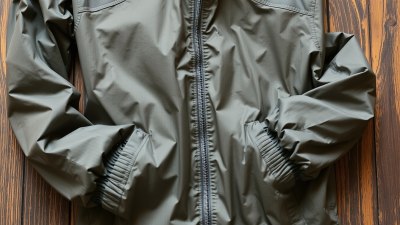How to Act Natural After Getting Smacked by a Rogue Wave
Learn effective strategies to stay calm and act natural post-rogue wave incident.

This image was created with the assistance of Freepik
Experiencing a rogue wave can be one of the most startling and unexpected events while enjoying the ocean. These powerful waves can appear suddenly and can catch even the most seasoned mariners off guard. In such instances, knowing how to act natural afterward can help you regain composure and process the experience. This article will explore various strategies one might employ after encountering a rogue wave, focusing on managing emotions, ensuring safety, and maintaining company morale.
Understanding Rogue Waves
Rogue waves, often referred to as freak waves, are ocean waves that can be more than twice the height of surrounding waves. These waves can occur due to various factors, including strong winds, underwater topography, and the interplay between different wave patterns. It is essential to understand that encountering a rogue wave can be a traumatic experience, leading to shock, fear, and confusion.
Initial Reactions
Immediately after being hit by a rogue wave, it is natural to feel a rush of emotions. Shock, disbelief, and panic are common reactions. However, being aware of these feelings can help you manage your response better. Take a moment to breathe deeply and assess the situation. Are you physically unharmed? Is everyone around you safe? Taking stock of your surroundings will help you orient yourself better post-incident.
Stay Calm and Collected
In the face of surprise, staying calm can sometimes be easier said than done. It might help to practice grounding techniques that focus on bringing your attention back to the present. One effective method is to engage your senses. Try to notice the sounds of the ocean, the rhythm of your breath, and sights around you. By anchoring yourself in the moment, you facilitate a sense of calm that allows for more natural reactions.
Assessing the Situation
Once you start to regain your composure, it’s crucial to assess your surroundings for safety. If you are out at sea, check for damage to your vessel and look for any potential hazards. If you are on the beach, ensure that you are distanced from further waves and debris. Assess whether anyone else requires assistance and coordinate to ensure everyone is accounted for. This assessment will not only help you stay safe but will also instill confidence in those around you.
Managing Physical Responses
After a rogue wave encounter, your body may still be in a state of heightened alertness due to adrenaline. Use this energy wisely; however, also recognize when it’s time to transition to calmer activities. Engage in light stretching or deep breathing exercises to help ease tension. This release may help normalize physical symptoms, such as shaky hands or rapid heartbeat, allowing you to present a more composed demeanor.
Communicate Clearly
As you regain your bearings, communication becomes key to acting naturally. Share your observations with others around you. Use clear, concise language when discussing any immediate actions required. For instance, if someone is injured, call for assistance without sounding too panicked. This level-headedness not only reassures those around you but reinforces your ability to take control of the situation.
Providing Support to Others
If you are with others who have also encountered the rogue wave, be attentive to their needs. Some individuals might express fear or disbelief, while others may be in shock. Foster a supportive environment by validating their feelings and offering reassurances. This can help everyone transition back to normalcy more naturally. Sometimes, simply sharing experiences can bond a group after an intense event.
Debriefing the Experience
Once immediate concerns have been addressed, it can be beneficial to debrief the situation with your companions. Discuss what happened, share your feelings, and allow others to do the same. This process can be cathartic and enables everyone to move forward. Assessing the event collectively promotes healing and reinforces that you are not alone in your experience.
Safety Measures for the Future
After a rogue wave experience, reflect on safety measures that can be taken in the future. Whether you are sailing or enjoying a day at the beach, understanding wave patterns and recognizing hazardous zones is crucial. Integrate this knowledge into your future activity plans and share the importance of preparedness with fellow ocean enthusiasts.
Finding the Humor
Sometimes, humor can serve as an excellent coping mechanism. Sharing a light-hearted story or making a joke can lighten the mood and help alleviate tension among your group. It reminds everyone that while the situation was intense, they are safe now and can continue to enjoy their time by the ocean.
Engaging in Reflective Practices
As time passes, engaging in reflective practices can help process emotions related to the rogue wave experience. This may involve writing in a journal, partaking in art therapy, or speaking to a professional counselor who specializes in trauma response. By reflecting on the incident, individuals can better understand their reactions, integrate the experience into their lives, and learn from it.
Resuming Normal Activities
After some time has passed, it’s essential to return to normal activities, especially if your encounter with the rogue wave disrupted your enjoyment of the ocean. Revisit calming practices such as swimming, sailing, or simply relaxing on the beach while being aware of surf conditions. Creating positive associations with the ocean again is key to overcoming your experience.
Encountering a rogue wave can be a daunting experience, but knowing how to act natural afterward is crucial. By maintaining calm, assessing safety, supporting others, and reflecting on the event, you can navigate the aftermath fluidly. Embrace your resilience, learn from the situation, and ultimately, remember that the ocean remains a space of beauty and adventure, rich with experiences waiting to unfold.











